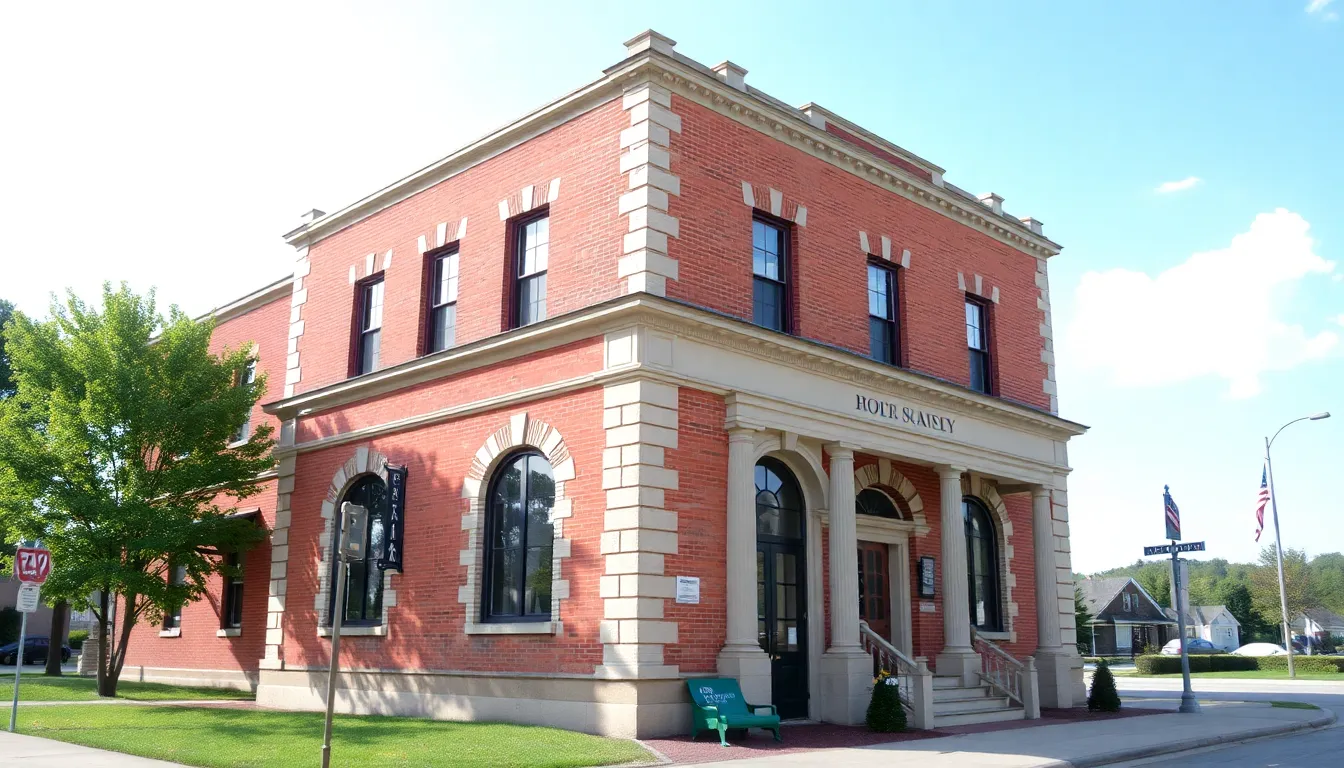Table of Contents
ToggleIn the bustling world of real estate, the Allegheny County Recorder of Deeds plays a role that’s as vital as a coffee break on a Monday morning. This office isn’t just about paperwork; it’s the gatekeeper of property records, ensuring that every deed is filed, every property is accounted for, and every homeowner can sleep soundly knowing their castle is secure.
Imagine navigating the wild west of property ownership without a trusty sidekick to keep everything in check. That’s where the Recorder of Deeds steps in, armed with a quill and a sense of duty. Whether you’re buying your first home or diving into investment properties, understanding this office can save you from potential pitfalls and make your real estate journey a breeze. So, let’s dive into the world of deeds, records, and a sprinkle of humor as we explore what makes this office essential in Allegheny County.
Overview of Allegheny County Recorder of Deeds
The Allegheny County Recorder of Deeds plays an essential role in managing property records. This office acts as a guardian for property ownership, ensuring that all documents are accurately filed and accessible.
Role and Responsibilities
Responsibilities include the collection, recording, and preservation of property deeds. The office processes mortgage documents, liens, and various real estate instruments. Each record that they maintain helps protect homeowners’ rights and promotes transparency in property ownership. They’re tasked with ensuring that all filings comply with state laws, which solidifies the legitimacy of the recorded documents.
Importance in Property Transactions
In property transactions, the Recorder of Deeds serves as a reliable source of information for buyers and sellers. Transactions often require verified records to confirm ownership and the status of any liens. This office provides crucial data that supports smooth negotiations and closings. Buyers must research property history, while sellers gain protection against fraudulent claims. Access to accurate records fosters trust and helps prevent disputes, making the Recorder of Deeds an indispensable element of real estate in Allegheny County.
Historical Background


The history of the Allegheny County Recorder of Deeds reflects its importance in safeguarding property records. This office plays a pivotal role in the real estate landscape.
Establishment of the Office
The Recorder of Deeds office was established in 1777, stemming from the need for organized property record management in Pennsylvania. Initially, the responsibilities included recording land deeds, mortgages, and other related documents. Authority in this area was granted to local officials, streamlining real estate transactions. Over time, the office evolved to serve a growing population and an increasingly complex legal landscape.
Evolution Over the Years
As Allegheny County expanded, so did the demands on the Recorder of Deeds. Technological advancements led to the digitization of records in the late 20th century. This significant change made accessing property information easier for the public. Additionally, the office incorporated modern tools to enhance the accuracy and security of recorded documents. Today, the Recorder of Deeds remains pivotal in upholding property rights and ensuring smooth transactions in the county.
Services Provided
The Allegheny County Recorder of Deeds offers essential services that underpin the integrity of property records within the county.
Deed Recording
Deed recording stands as a fundamental service offered by the Recorder of Deeds. Individuals can submit various types of deeds, such as warranty deeds, quitclaim deeds, and more. Each deed undergoes a thorough review to ensure compliance with state requirements. This essential process safeguards property ownership rights and provides public notice of ownership changes.
Document Retrieval Services
Document retrieval services provide convenient access to a wide array of recorded documents. Users can obtain copies of deeds, mortgage documents, and liens through the office. By offering online services, the Recorder of Deeds facilitates quick access to these vital records. Individuals, real estate professionals, and title companies benefit from this efficient retrieval process, which supports informed decision-making.
Public Access to Records
Public access to records is a key feature of the Recorder of Deeds’ services. Property records are available for inspection, allowing the public to verify ownership and encumbrances. The office actively maintains an extensive database that can be accessed online. This transparency fosters trust in property transactions and ensures that accurate information is readily available to the community.
Current Challenges
The Allegheny County Recorder of Deeds faces several challenges that affect its operations and service delivery.
Technological Adaptations
Technological advancements require constant updates to systems used for recording and retrieving documents. The integration of new software may lead to temporary disruptions, impacting efficiency. Staff training on these updated systems highlights the necessity of maintaining skills amid rapid changes. Furthermore, cybersecurity threats pose significant risks, as protecting sensitive information remains a top priority. The transition from physical to digital records not only enhances accessibility but also introduces complexities that the office must navigate.
Accessibility Issues
Accessibility of recorded documents presents ongoing challenges. While online services have improved public access, certain demographics still struggle to utilize digital platforms. Geographic limitations often hinder individuals residing in remote areas, making it difficult to access essential records. Moreover, language barriers affect non-English speakers’ ability to navigate available resources. The need for continuous improvement in both online and in-person services is crucial to ensuring that all community members benefit from the office’s offerings.
Future Directions
Innovations and enhancements lie ahead for the Allegheny County Recorder of Deeds. This office focuses on leveraging technology to improve record keeping and public service accessibility.
Innovations in Record Keeping
Embracing technology, the Recorder of Deeds aims to streamline operations through advanced software systems. These systems enhance the efficiency of recording processes, ensuring that property documents are accurate and quickly accessible. Digitization efforts include automatic updates and improved data integrity measures. New mobile applications offer users access to public records on-the-go, promoting greater convenience. Maintaining transparency also plays a crucial role, as innovations support user-friendly interfaces that allow for easy navigation of public databases.
Enhancements in Public Services
Expanding outreach programs remains a top priority for the Recorder of Deeds. Services that improve access for underrepresented communities are actively being developed. Educational workshops will help demystify the property transaction process, especially for first-time buyers. Increasing support for non-English speakers ensures inclusivity in navigating available resources. Enhanced online resources, including FAQs and live chat options, will provide immediate assistance to users. Creating partnerships with local organizations also strengthens community ties and broadens awareness of the services offered.
The Allegheny County Recorder of Deeds remains a cornerstone of property management and ownership security. By adapting to modern challenges and embracing technological advancements, it continues to enhance public access to vital records. This commitment not only supports smooth real estate transactions but also fosters community trust and transparency. As the office looks to the future, its focus on inclusivity and improved services will ensure that all residents can navigate property ownership with confidence. The ongoing evolution of the Recorder of Deeds reflects its dedication to safeguarding property rights for generations to come.






